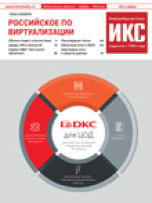| Рубрикатор |  |
 |
| Все новости |  |
World News |  |
 |
European Parliament votes for BERT
| 09 июля 2008 |
The European Parliament, which yesterday evening voted on amendments to the EU telecom package, agreed on an alternative to Viviane Reding's proposals for a super regulator.
Rather than hand a veto to Brussels, the European parliament proposed, as expected, a strengthened alternative to today's European Regulatory Group (ERG), called the Body of European Regulators in Telecommunications (BERT), which will be able to vote as a single voice.
The parliament also managed to please and disgruntle incumbents and alternative operators in equal measure with its amendments to European Commission proposals for fibre access network regulation and functional separation.
Although the parliament agreed regulators should have the ability to apply functional separation, it noted this should be an exceptional measure and wrapped red tape around Reding's original proposal. The parliament wants national regulators to be able to enforce functional separation "only if both the Commission and BERT confirm that no other measure has achieved effective competition and that, without the remedy, there is little prospect of future infrastructure-based competition."
But this, claim alternative operators, dilutes the threat.
"That functional separation wasn't deleted is very positive for us," said Ilsa Godlovitch, director of Regulation for ECTA. However, "it has been watered down. The commissioner's [original proposal] was quite robust," Godlovitch said.
Incumbent operators, meanwhile, are disappointed the threat of functional separation remains present in any form: The inclusion of functional separation is "a deterrent to investment," says ETNO in a statement.
However, ETNO did welcome the parliament's vote in favour of having both network constructors and companies that use new fibre facilities, share the financial risk.
This, for example, could see companies wishing to use new fibre facilities signing a contract to lease a minimum number of lines for a set number of years from the company building the network.
Altnets, however, would prefer fibre network builders to cover their risk through a wholesale pricing structure that includes the concept of a fair return on investment – rather than through up-front payments.
"What incumbents mean by it is a system where everyone pays money and pays up front," said ECTA's Godlovitch.
The submarine cable market already functions in this way. However, Godlovitch argues the structure of the submarine fibre market does not transfer readily to local access, where service providers may be considerably smaller than the company building the network, and less able to put down cash.
"In the undersea cable market you have a large number of players of equal size. In that environment it makes sense. It makes less sense ... if one operator has ten times the revenue of the next biggest," contends Godlovitch.
Источник: Total Telecom

















Оставить свой комментарий:
Комментарии по материалу
Данный материал еще не комментировался.